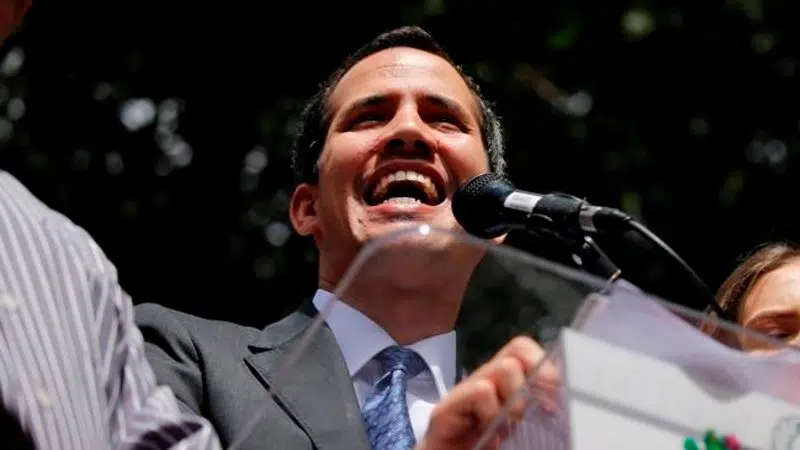
Dueling Venezuela leaders dig in defending presidency claims
CARACAS, Venezuela — The Venezuelan opposition leader who has declared himself interim president vowed Friday he would remain on the streets until the South American country has a transitional government, while President Nicolas Maduro dug in and accused his opponents of orchestrating a coup.
In dueling press conferences, Juan Guaido urged his followers to stage another mass protest next week, while Maduro pushed his oft-repeated call for dialogue. Each man appeared ready to defend his claim to the presidency no matter the cost, with Guaido telling supporters that if he is arrested they should “stay the course” and peacefully protest.
But the standoff could set the scene for more violence and has plunged troubled Venezuela into a new chapter of political turmoil that rights groups say has already left more than two dozen dead as thousands take to the street demanding Maduro step down.


